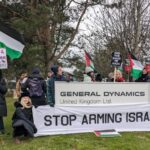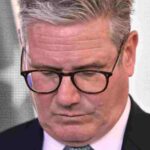Dr Celal Cahit Agar is a lecturer at St Andrews University, School of Management. This article was co-authored with Steffen Böhm, professor in organisation studies at the University of Exeter Business School.
Turkey’s recent invasion of northern Syria – i.e. “Operation Peace Spring” – sought to displace largely Kurdish communities and establish what Turkish leader Recep Tayyip Erdoğan calls a 20-mile ‘safe zone’ alongside the Turkish-Syrian border. This has faced widespread international condemnation. But the commentaries on Turkey’s latest attack have mostly focused on the history of the Turkish-Kurdish conflict and its relation to Turkey’s alleged national security concerns and the Syrian refugee crisis. And they overlook two crucial reasons for the invasion – the economic crisis in Turkey and Erdoğan’s political challenges at home.
Economic crisis in Turkey requires radical actions beyond monetary solutions
One of the less highlighted rationales behind Turkey’s invasion of Syria is that Erdoğan’s regime is seeking to lift the economy out of the ongoing economic crisis. In fact, Turkey’s debt-driven economy has long been suffering from the structural pressures of currency-exchange-rate valuation risks and liquidity risks. The crisis has been further deepening this year, as the Turkish lira has lost value against the US dollar, the stock market has continued to decline, and government borrowing costs have become more expensive than ever before.
Furthermore, as the Fitch report underlines, Turkey’s current policy responses to the deepening economic crisis have fallen well short of stabilising the currency and economy, leading to predictions of a deepening recession unless Turkey could make a “greater effort” beyond “incomplete policy responses” to balance the large current account deficit and external financing requirements.
Here, the Turkish construction industry requires particular attention as it has been the locomotive of the Turkish economy, particularly for the last decade and a half. Nonetheless, despite being the largest employer in Turkey and the second biggest contractor in the world, long gone are its shining days.
The Turkish construction industry has been facing an oversupply crisis, demanding new profitable spaces to explore and develop. Turkey’s ‘safe zone’ plan, meanwhile, promises a $26bn-worth new market for the industry, which could boost the recovery of the Turkish economy. As a matter of fact, and quite unsurprisingly, Turkish cement firms’ shares rose for two straight days on expectations of a much-needed building boom, which Erdoğan has been looking forward to for a long time.
‘National security’ as a handy tool to ease Erdoğan’s political woes at home
The second rationale that needs to be stressed here is the management of political challenges at home through a new cross-border war against the Kurds. The ‘Kurdish question’ has always been a practical tool in the hands of the ruling political elites in Turkey to maintain their political power and to ease political turbulence by reunifying right-wing nationalist civil society and political organisations under the flag of Turkish chauvinism. As we outlined previously, in the case of Academics for Peace, this handy solution has been put into practice by Erdoğan particularly after the June 2015 Turkish general elections, when Erdoğan’s Justice and Development Party (AKP) failed to win a majority in parliament for a single-party government.
It’s clear that the same logic of practice has been put into action with Turkey’s military attack on the Kurds in Syria to silence growing critical voices in the midst of a worsening Turkish economy. Nevertheless, what makes Turkey’s historical anti-Kurdish strategy distinctive in the case of Syria is the geographical ‘location’ of the war. In fact, the implementation of Turkey’s historical anti-Kurdish doctrine beyond Turkey’s border allows Erdoğan to manage the political challenges faced by the regime.
In contrast to the political and military oppression of Kurds in Turkey, a cross-border operation offers a wider political ground to establish an expanded consensus between conflicting parties, since it has been portrayed as the ‘national’ interest of the Turkish people that should be defended against the ‘others’, regardless of the differences in their political opinions and class positions. As the developments in the political spheres of Turkey have shown, Turkey’s invasion of Syria has successfully united the ruling and opposition parties against the “eternal enemy” in Syria.
Building his anti-Kurdish war strategy, Erdoğan not only re-consolidates his declining power by recovering his coalition with the nationalist MHP (which has become more fragile, particularly after the 2019 Turkish local elections which saw the AKP lose key cities like Istanbul and Ankara), but he also capitalises on the Syria war by forcefully ‘acquiring’ pro-Kurdish HDP municipalities in Kurdish-majority provinces and towns in Turkey, as he simply ordered a number of Kurdish mayors to be put on trial and replaced.
It’s also obvious that, by locating the frontlines of its anti-Kurdish war beyond its national boundaries, Turkey minimises unfavourable social, political, and military outcomes of its anti-Kurdish strategy at home. More importantly, however, Erdoğan’s preference for the military presence of Turkey in Syria under the pretext of ‘national security’ provides a guaranteed seat at the table in any future negotiations over the geopolitical future of the Middle East.
Overall, Turkey’s political and military agenda in Syria cannot be understood fully by focusing solely on the Turkish-Kurdish conflict. Bigger issues are at play. The war is timely as it provides an answer to economic and political woes at home. The geopolitical future of the whole Middle East is at stake; and vested interests in Turkey want to be a part of this.
Featured image via ANF

















